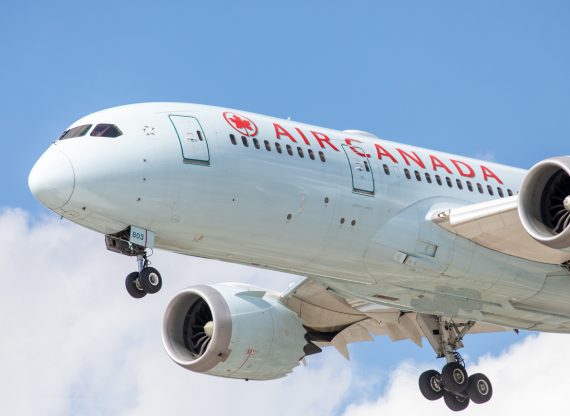Airlines: It’s Barriers to Entry, Not Market Shares, That Matter

On February 11, 2021, the Trudeau government approved the purchase of Air Transat by Air Canada. With a 60% decline in passengers worldwide in 2020 and an estimated loss of US$391 billion in revenue, COVID-19 has put many airlines at risk of collapse. Air Canada has argued that the proposed acquisition likely offers the best outcomes for workers, passenger service levels, and the financial health of the air transportation sector. But should consumers be worried about potential price hikes?
The Competition Bureau claimed last year that the acquisition would result in fewer options and higher prices for passengers resulting from Air Canada’s increased market share. However, both economic theory and empirical evidence suggest that it is barriers to entry rather than the size and number of firms in a market that matter. And in fact, the Competition Bureau also concluded that barriers to entry in Canada’s airline sector are generally high. Indeed, while the World Economic Forum’s 2019 Travel and Tourism Competitiveness Report ranked Canada 9th overall, we were only 61st for “International Openness,” and 107th for “Price Competitiveness,” out of 140 countries.
The MEI released a publication on this very topic in 2019, which outlined that a firm’s market share, even if significant, does not necessarily signify a lack of competition. Firms that dominate a market may have managed to reach their position by being more efficient than others, increasing the quality of their products, and reducing prices. In a market where entry is unrestricted, any deterioration in quality or undue increase in prices will tend to encourage both actual and potential competitors to attempt to win over the market share held by the dominant firm. High levels of concentration in this context can thus result in access to cheaper goods of higher quality, as well as gains for consumers through innovation.
When it comes to airline competition, though, the Canada Transportation Act explicitly limits foreign competition and prohibits non-Canadian carriers from transporting passengers between Canadian airports. What this means in practice is that a non-Canadian carrier cannot take on passengers in Winnipeg, drop them in Montreal, and take on new passengers there before heading to Amsterdam. Such barriers to competition—which stem from government policy, not from the market or its dominance by any one competitor—do tend to artificially raise airline ticket prices.
To be fair, such barriers exist in many other countries as well, thus restricting Canadian airlines’ ability to compete abroad. If we really want to enhance the consumer experience, we need to turn our attention to the elimination of such barriers to entry, both in Canada and abroad. Artificially restricting Air Canada’s market share in this country would only make it harder for the airline to compete with even larger players internationally.

